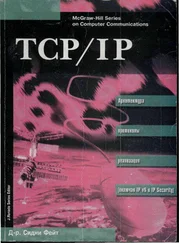Some more traditional sectors still haven't adopted responsible disclosure. Volkswagen sued researchers in the universities of Birmingham and Nijmegen who reverse-engineered some online car theft tools and documented how poor their remote key entry system was. The company lost, making fools of themselves and publicising the insecurity of their vehicles (I'll discuss the technical details in section 4.3.1and the policy in section 27.5.7.2). Eventually, as software permeates everything, software industry ways of working will become more widespread too. In the meantime, we can expect turbulence. Firms that cover up problems that harm their customers will have to reckon with the possibility that either an internal whistleblower, or an external security researcher, will figure out what's going on, and when that happens there will often be an established responsible disclosure process to invoke. This will impose costs on firms that fail to align their business models with it.
Our fourth category is abuse, by which we usually mean offences against the person rather than against property. These range from cyber-bullying at schools all the way to state-sponsored Facebook advertising campaigns that get people to swamp legislators with death threats. I'll deal first with offences that scale, including political harassment and child sex abuse material, and then with offences that don't, ranging from school bullying to intimate partner abuse.
2.5.1 Hacktivism and hate campaigns
Propaganda and protest evolved as technology did. Ancient societies had to make do with epic poetry; cities enabled people to communicate with hundreds of others directly, by making speeches in the forum; and the invention of writing enabled a further scale-up. The spread of printing in the sixteenth century led to wars of religion in the seventeenth, daily newspapers in the eighteenth and mass-market newspapers in the nineteenth. Activists learned to compete for attention in the mass media, and honed their skills as radio and then TV came along.
Activism in the Internet age started off with using online media to mobilise people to do conventional lobbying, such as writing to legislators; organisations such as Indymedia and Avaaz developed expertise at this during the 2000s. In 2011, activists such as Wael Ghonim used social media to trigger the Arab Spring, which we discuss in more detail in section 26.4.1. Since then, governments have started to crack down, and activism has spread into online hate campaigns and radicalisation. Many hate campaigns are covertly funded by governments or opposition parties, but by no means all: single-issue campaign groups are also players. If you can motivate hundreds of people to send angry emails or tweets, then a company or individual on the receiving end can have a real problem. Denial-of-service attacks can interrupt operations while doxxing can do real brand damage as well as causing distress to executives and staff.
Activists vary in their goals, in their organisational coherence and in the extent to which they'll break the law. There's a whole spectrum, from the completely law-abiding NGOs who get their supporters to email legislators to the slightly edgy, who may manipulate news by getting bots to click on news stories, to game the media analytics and make editors pay more attention to their issue. Then there are whistleblowers who go to respectable newspapers, political partisans who harass people behind the mild anonymity of Twitter accounts, hackers who break into target firms and vandalise their websites or even doxx them. The Climategate scandal, described in 2.2.5above, may be an example of doxxing by a hacktivist. At the top end, there are the hard-core types who end up in jail for terrorist offences.
During the 1990s, I happily used email and usenet to mobilise people against surveillance bills going through the UK parliament, as I'll describe later in section 26.2.7. I found myself on the receiving end of hacktivism in 2003 when the Animal Liberation Front targeted my university because of plans to build a monkey house, for primates to be used in research. The online component consisted of thousands of emails sent to staff members with distressing images of monkeys with wires in their brains; this was an early example of ‘brigading’, where hundreds of people gang up on one target online. We dealt with that online attack easily enough by getting their email accounts closed down. But they persisted with physical demonstrations and media harassment; our Vice-Chancellor decided to cut her losses, and the monkey house went to Oxford instead. Some of the leaders were later jailed for terrorism offences after they assaulted staff at a local pharmaceutical testing company and placed bombs under the cars of medical researchers [21].
Online shaming has become popular as a means of protest. It can be quite spontaneous, with a flash mob of vigilantes forming when an incident goes viral. An early example happened in 2005 when a young lady in Seoul failed to clean up after her dog defecated in a subway carriage. Another passenger photographed the incident and put it online; within days the ‘dog poo girl’ had been hounded into hiding, abandoning her university course [420]. There have been many other cases since.
The power of platforms such as Twitter became evident in Gamergate, a storm sparked by abusive comments about a female game developer made publicly by a former boyfriend in August 2014, and cascading into a torrent of misogynistic criticism of women in the gaming industry and of feminists who had criticised the industry's male-dominated culture. A number of people were doxxed, SWATted, or hounded from their homes [1936]. The harassment was coordinated on anonymous message boards such as 4chan and the attackers would gang up on a particular target – who then also got criticised by mainstream conservative journalists [1132]. The movement appeared leaderless and evolved constantly, with one continuing theme being a rant against ‘social justice warriors’. It appears to have contributed to the development of the alt-right movement which influenced the 2016 election two years later.
A growing appreciation of the power of angry online mobs is leading politicians to stir them up, at all levels from local politicians trying to undermine their rivals to nation states trying to swing rival states' elections. Angry mobs are an unpleasant enough feature of modern politics in developed countries; in less developed countries things get even worse, with real lynchings in countries such as India (where the ruling BJP party has been building a troll army since at least 2011 to harrass political opponents and civil-society critics [1640]). Companies are targeted less frequently, but it does happen. Meanwhile the social-media companies are under pressure to censor online content, and as it's hard for an AI program to tell the difference between a joke, abuse, a conspiracy theory and information warfare by a foreign government, they end up having to hire more and more moderators. I will return to the law and policy aspects of this in 26.4 below.
2.5.2 Child sex abuse material
When the Internet came to governments' attention in the 1990s and they wondered how to get a handle on it, the first thing to be regulated was images of child sex abuse (CSA), in the Budapest Convention in 2001. We have little data on the real prevalence of CSA material as the legal restrictions make it hard for anyone outside law enforcement to do any research. In many countries, the approach to CSA material has less focus on actual harm reduction than it deserves. Indeed, many laws around online sexual offences are badly designed, and seem to be driven more by exploiting outrage than by minimising the number of victims and the harm they suffer. CSA may be a case study on how not to do online regulation because of forensic failures, takedown failures, weaponisation and the law-norm gap.
Читать дальше











